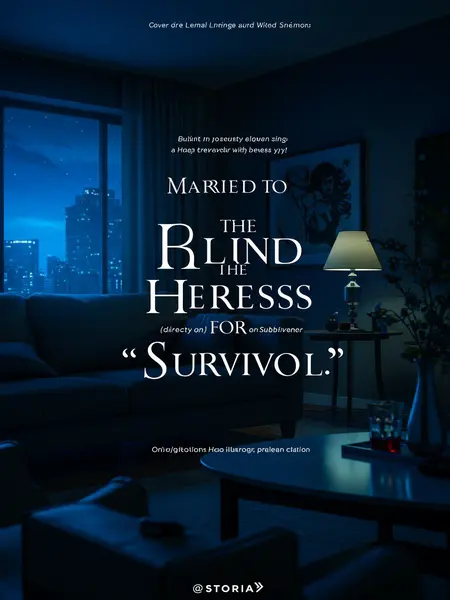Chapter 3: Natalie’s Story
My name is Natalie. My last name is my mother’s—my father was never in the picture.
My mom died three years ago, leaving me alone.
I was just a blind girl, but after my mom passed, she left me a lot of money. So I became a blind girl with money.
Turns out, being a blind girl with money is like bleeding in shark-infested water.
When I was sixteen, my relatives fought to become my guardian. Of course, I knew they had ulterior motives—they wanted my money, all of it.
Their endless fighting and scheming pushed me into depression.
Back then, I had suicidal thoughts many times. I even stood on the window ledge once.
But my cousin pulled me back.
He was the only relative who was ever good to me, always had been.
When I was little and couldn’t see, he would read me storybooks.
I loved his family’s tabby cat, but it was wild and always out roaming. Whenever I visited, he would search everywhere to catch the cat, just so I could pet it.
He was always good to me.
He told me that at sixteen, with my own finances, I didn’t legally need a guardian.
Only then did the other relatives finally leave, albeit unwillingly.
My cousin stayed, always by my side, taking care of me just like when I was a child.
At that time, I’d just lost my mom and was suffering from depression. If it hadn’t been for him, I don’t know if I would have made it.
After high school, I didn’t go on to college. My cousin encouraged me to keep studying or at least go out more, but I was too withdrawn and depressed to leave the house.
At first, everything was still okay.
But after I turned eighteen, I sensed my cousin had changed. He was still good to me, but his kindness no longer felt as pure as when we were children.
He started touching me, sometimes intentionally, sometimes not. I’d freeze, heart pounding, every nerve on edge, wishing I could just disappear. The way he breathed when looking at me was different.
The blind are sensitive to the air. Even if I couldn’t see, I could feel the atmosphere change when we were alone.
I got scared and began to avoid him.
He noticed. I could sense his disappointment.
But he’s my cousin. No matter what, it’s not allowed—by law or by ethics.
And I was grateful to him. My feelings were purely familial, nothing more.
Two months ago, he confessed his feelings to me. I refused him clearly.
I could feel his sadness, but I had no choice.
Fortunately, after a few days, he seemed to return to his old self—cheerful again, making me laugh, as if the confession had never happened.
I was relieved. I was always afraid of losing the only relative who was good to me.
...
But since then, my illness took a turn for the worse. Originally, with the doctor’s prescription of fluoxetine and olanzapine, my mood was slowly improving.
But recently, I kept hitting rock bottom, with severe chest tightness and headaches.
When I called you for help, I already suspected there was something wrong with my medicine.
And there was.
She fell silent, fingers tracing patterns on the tabletop, her nails nervously tapping out a rhythm only she could hear. I imagined her world—a place of sounds, touch, and trust constantly under siege.













